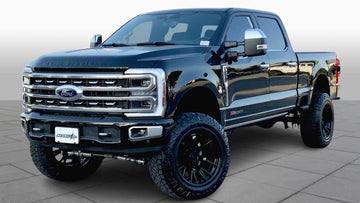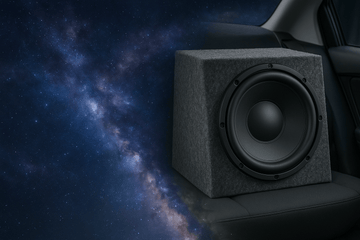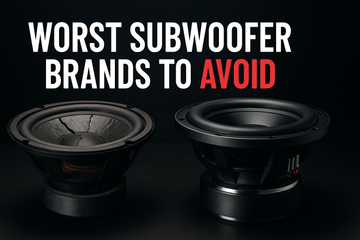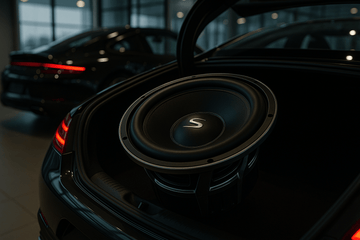Best Subwoofers for Trucks 2025: Top Picks & Buying Guide
Trucks have tight spaces, shallow mounting depths, and lively cabins. This guide explains what works, why it works, and which subs deliver strong bass without wasting space.
A subwoofer changes the feel of your truck’s system. It adds low-frequency energy that door speakers cannot produce. The challenge is space: under-seat and behind-seat areas limit mounting depth and box volume. Heat and vibration also matter because trucks have less air volume and more hard surfaces.
The right truck sub balances three things: fit (mounting depth and cutout), performance (RMS power, excursion, and cone control), and enclosure (sealed vs ported volume you can actually fit). Modern shallow-mount designs with long excursion now produce bass that used to require deeper baskets and larger boxes.
Quick picks: Wavtech ThinPRO12 for tight installs, JL Audio 10TW3-D4 for clean tone, Alpine RSW10D4 for value, and Kicker Solo X L7X for maximum output when space allows.
Below you’ll find the top models, a comparison table, and a step-by-step buying framework. You’ll learn how enclosure size, tuning, and amplifier matching affect real results inside a truck cabin.
Audio Intensity's 2025 Truck Subwoofer Champions
These picks balance fit, output, and reliability. We highlight the use case and the box types that unlock the sound.

Wavtech ThinPRO12
3″ mounting depth with high excursion. Works in sealed ~0.6 cu ft or ported ~1.0 cu ft. Ideal under seats where space is tight but strong bass is required.
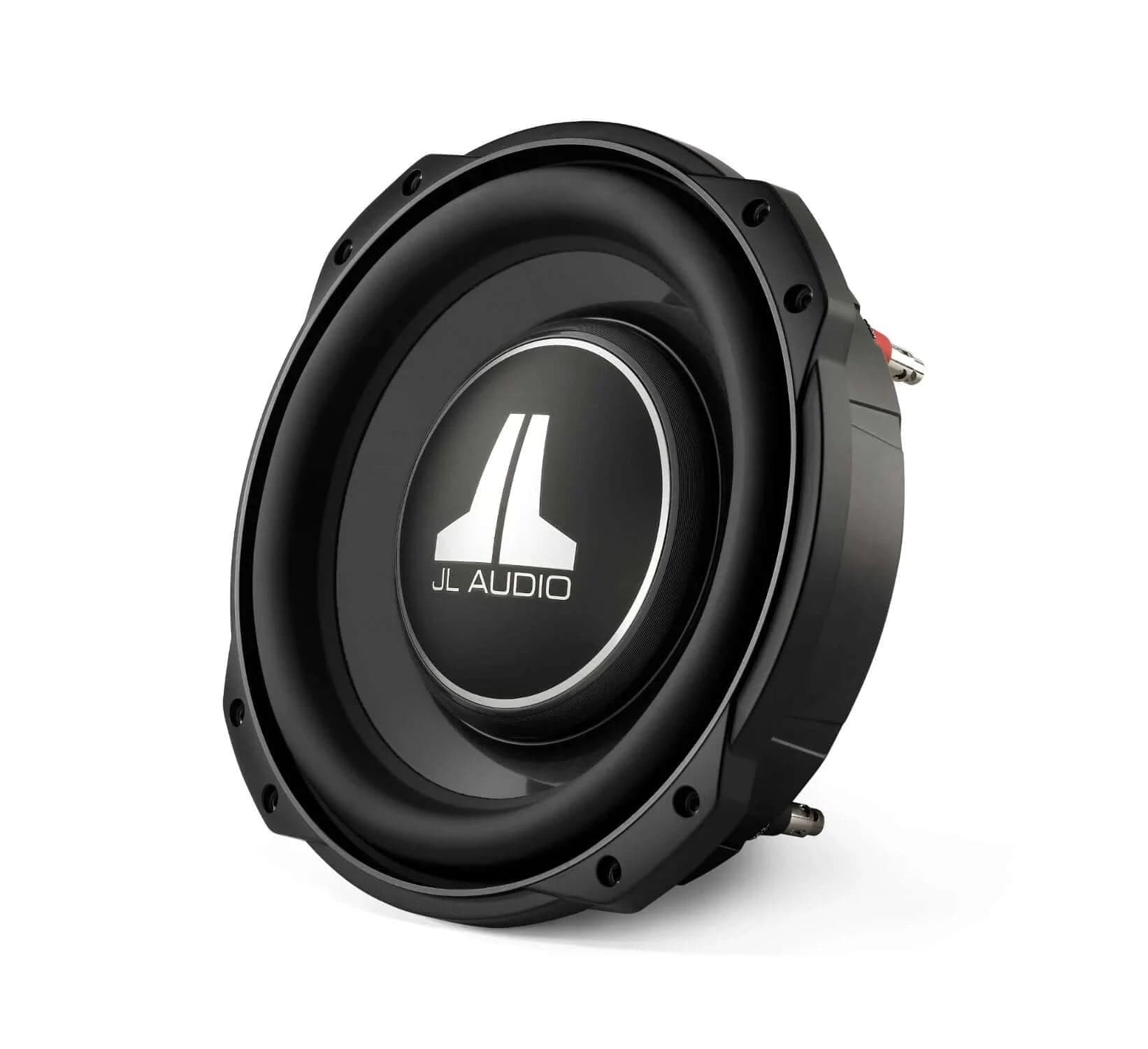
JL Audio 10TW3-D4
Thin-line basket with clean, articulate tone. Sealed enclosures around 0.5–0.7 cu ft suit most crew cab installs where accuracy matters.
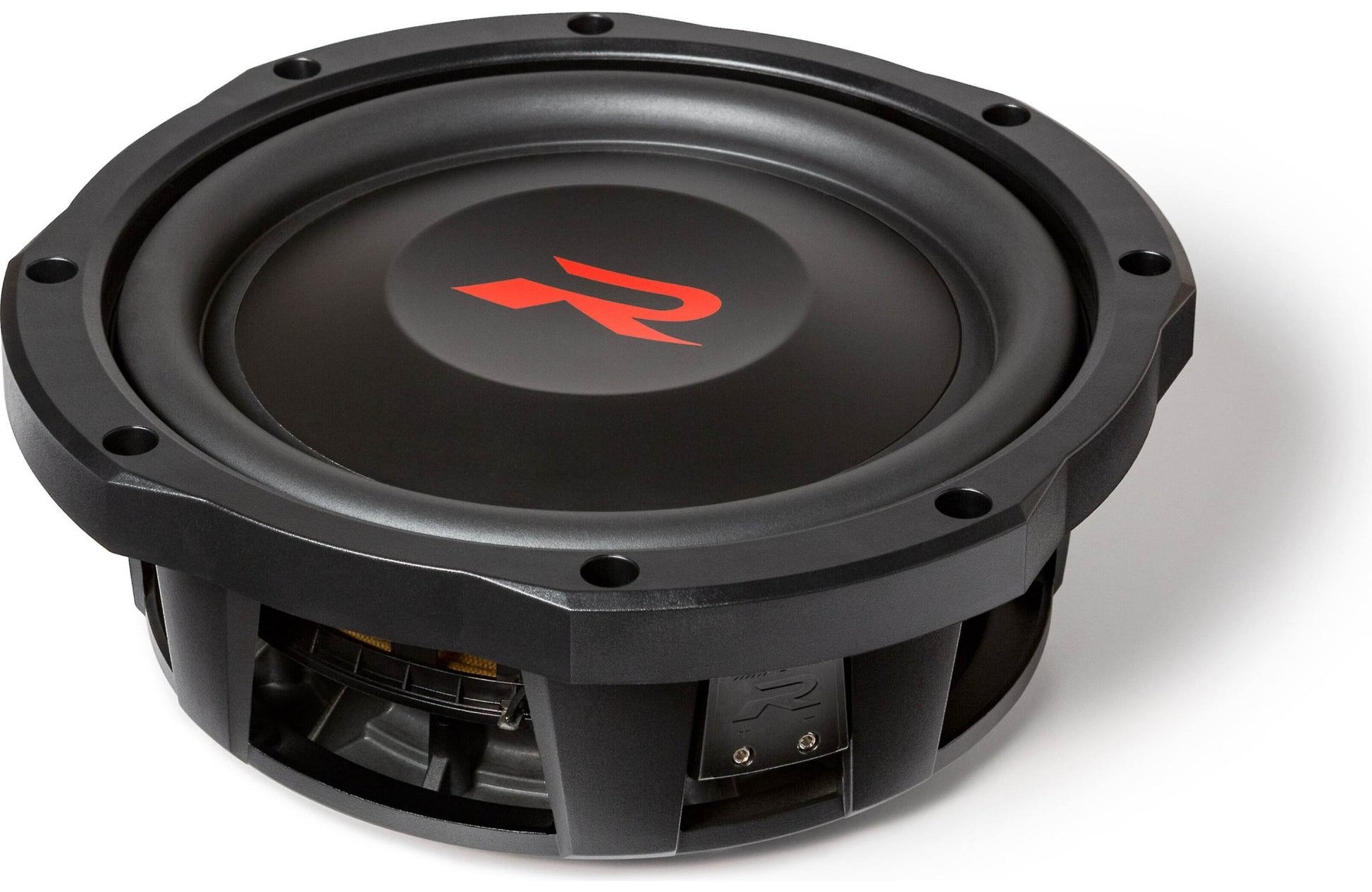
Alpine RSW10D4
Space-saving design with strong daily output. Pairs well with compact sealed boxes and mid-power amps for balanced bass in small cabins.
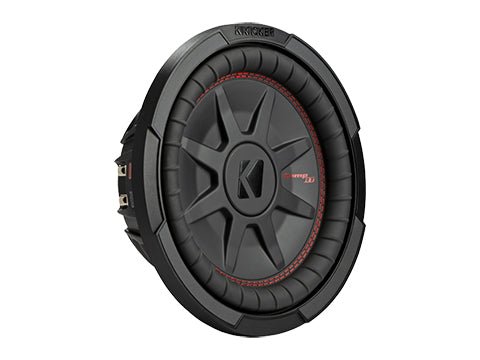
Kicker CompRT 10
Slim basket, durable cone, and reliable performance. Good choice for budget-minded truck owners who need a simple, proven upgrade path.
Quick Comparison: Truck Subwoofers 2025
| Model | RMS Power | Mounting Depth | Enclosure Type | Best For |
|---|---|---|---|---|
| Wavtech ThinPRO12 | 750W | 3.0″ | Sealed / Ported | Under-seat, tight space |
| JL Audio 10TW3-D4 | 400W | ~3.25″ | Sealed | Sound quality focus |
| Alpine RSW10D4 | 600W | ~3.25″ | Sealed / Ported | Budget daily builds |
| Kicker Solo X L7X (12) | 2000W+ | 8.5″+ | Ported (large) | SPL and max output |
Evaluating 2025's Top Subwoofer Brands for Trucks

Brand choice guides your results. Build quality, warranty, cone materials, and spider design affect output and durability. Below are common brand directions and where they fit in a truck system.
Skar Audio: Strong Output per Dollar

Skar focuses on high output at approachable prices. Their rubber surrounds and venting help control cone motion under load. This is an option for entry-level SPL or budget daily builds where raw impact matters.
For best results, match the enclosure size to the model’s published volume and ensure clean power from a stable amplifier.
Pro Tip: Pair with reliable amplifiers and proper gauge wiring to avoid clipping and thermal stress.
Rockford Fosgate: Proven Reliability

Rockford’s lines are known for steady performance and robust baskets. Many models favor slightly larger enclosures, which can help with deeper extension when you have room.
If you want a dependable upgrade that tolerates long sessions, Rockford stays on the short list.
Install Note: Check our installation guides for wiring diagrams and impedance charts.
Pioneer: Clean Bass in Compact Boxes

Pioneer’s sealed-box focus helps achieve tight response in limited space. That suits truck owners who want defined bass lines and low group delay.
For simple daily builds with a clean tone, Pioneer systems integrate well with factory audio when paired with the right amplifier or DSP.
System Tip: See our car speakers collection to keep tonal balance after adding low bass.
KICKER: High Output, Broad Range

From slim CompRT to the extreme Solo X, Kicker covers compact value up to competition-grade output. Choose CompRT for simple installs; choose Solo X when you have room for a large, tuned ported box.
Featured: Kicker CompRT 10 — durable, affordable path to real bass in tight trucks.
Top 3 New Sub $20,000 Compact Pickup Trucks To Watch Out for in 2025
Sound Storm Laboratories: Space-First Options

SSL systems focus on compact packaging and easy placement. These solutions suit trucks that cannot spare depth and need a ready-to-install box.
Space Planner: See our enclosure articles for volume targets and layout ideas.
Breaking Down the Subwoofer Models

Model choice depends on box volume, power, and target sound. These examples show where each type fits best.
Skar Audio SVR-12 D2

For larger behind-seat boxes, the SVR-12 gives punchy bass and solid output. It benefits from clean power and a correctly tuned ported box when space allows.
Good for owners prioritizing slam over compact size.
Rockford Fosgate P300-10T (Powered)

A powered enclosure simplifies wiring and saves time. Output is moderate, but installation is fast and clean for basic upgrades.
Ideal for first-time sub installs or leased trucks.
Pioneer TS-WX1210A (Powered Sealed)

Tight sealed tuning with built-in power. Suits listeners who want clean lines and easy integration without a separate amplifier.
Pick when space and time are limited.
KICKER C12 in a Truck Box

A classic 12″ driver in a truck-style box remains effective when you have the width and height to spare. Expect strong cabin fill and a familiar bass curve.
Plan weight and tie-downs for safe mounting.
How to Choose the Best Subwoofer for Your Truck

Step 1 — Measure Real Space
Measure under-seat height, rear wall depth, and width. Subtract carpet and bracing. Confirm the mounting depth and cutout size you can support.
- Under-seat: focus on shallow-mount (3–4.5″ depth)
- Behind-seat: more depth allows traditional or higher output drivers
- Plan wire routes and amplifier placement before box selection
Step 2 — Pick Enclosure Type
Sealed boxes are compact and accurate. Ported boxes are larger but louder and deeper. Choose based on music and space.
- Sealed: smaller, smooth roll-off, tight kick drums
- Ported: higher output, deeper extension, needs more volume
- Powered enclosures: simple wiring, moderate output
Step 3 — Match RMS Power & Impedance
Align amplifier RMS with the sub’s RMS at the final impedance. Avoid clipping. Use proper gauge OFC wire and secure grounds.
- Target 80–120% of rated RMS for headroom
- Confirm amp stability at 2Ω or 1Ω as wired
- Set gains with a DMM or scope for clean signal
Step 4 — Tune for the Cabin
Trucks amplify certain frequencies. A small EQ cut around cabin peaks and correct subsonic filtering on ported boxes keep response clean.
- Set a subsonic filter just below tuning (ported)
- Use light EQ to tame cabin gain, not heavy boosts
- Add deadener to panels that buzz under low bass
Installation & Care
Best Practices
- Use quality amplifiers with clean power
- Secure boxes and hardware to prevent movement
- Vent amps and avoid blocked heat sinks
- Test polarity and rattles before final assembly
Maintenance
- Check terminals and grounds quarterly
- Inspect surrounds and spiders for wear
- Keep vents clear of debris and carpet fibers
- Recheck gains after system changes
Maximizing Your Truck's Soundscape

Use Materials that Hold Up
Rigid cones, strong spiders, and proper venting keep response consistent at volume. Look for long-throw designs when your box volume is small.
Combine a quality sub with the right enclosure volume and a clean amplifier. This trio decides the result more than any single spec.
Plan the Whole System
Keep front stage strong so bass integrates naturally. A DSP or proper crossover points help the sub hand off cleanly to the midbass.
If you add more power later, retune gains and filters. Small corrections maintain clarity as output rises.
Ready to build a balanced truck system? Start with the sub that fits and tune it right.
Frequently Asked Questions
What size subwoofer works best in a truck?
10″ and 12″ sizes cover most needs. They balance box volume, cone area, and cabin fill without awkward fitment.
Can shallow-mount subs hit hard?
Yes. High-excursion shallow models with strong motors and rigid cones deliver deep bass in small boxes when powered and tuned correctly.
Sealed or ported for a truck?
Sealed for compact accuracy and easy fit. Ported for more output and deeper extension when you can spare volume.
How much power do I need?
Most truck subs perform well with 500–1000W RMS. SPL builds can exceed 1500W but need electrical upgrades and careful tuning.
Do I need sound deadening?
Yes. It reduces panel buzz and cabin noise, which improves perceived bass quality and keeps rattles under control.
Can I keep my factory head unit?
Yes. Use an amp with high-level inputs or a DSP to integrate cleanly. Set crossovers to hand off around 70–90 Hz depending on your front stage.
Are powered subs worth it?
They save space and time. Output is moderate compared to separate amp + sub systems. Great for basic upgrades and leased vehicles.
How do I stop rattles?
Add deadener to doors and rear wall, tighten hardware, and pad contact points. Avoid excessive EQ boosts that excite cabin peaks.
Final Thoughts: Build Bass that Fits Your Truck

Pick the sub that fits your space and goals. Match RMS power, choose a box you can install correctly, and set gains cleanly. Small choices add up to clear bass that you can enjoy every day.
Ready to move forward? Compare our truck-ready subs, matched enclosures, and amplifiers. If you need advice, our team is here to help.
Build Your Truck System
Shop the parts, follow the steps, and enjoy bass that feels right on every drive.

